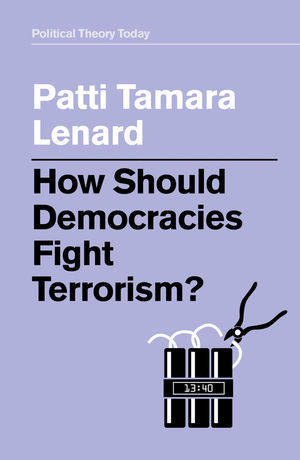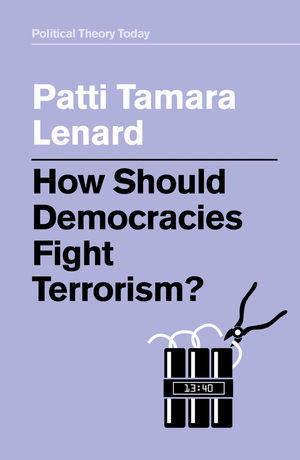
Door een staking bij bpost kan je online bestelling op dit moment iets langer onderweg zijn dan voorzien. Dringend iets nodig? Onze winkels ontvangen jou met open armen!
- Afhalen na 1 uur in een winkel met voorraad
- Gratis thuislevering in België vanaf € 30
- Ruim aanbod met 7 miljoen producten
Door een staking bij bpost kan je online bestelling op dit moment iets langer onderweg zijn dan voorzien. Dringend iets nodig? Onze winkels ontvangen jou met open armen!
- Afhalen na 1 uur in een winkel met voorraad
- Gratis thuislevering in België vanaf € 30
- Ruim aanbod met 7 miljoen producten
Zoeken
Omschrijving
In the wake of major terrorist attacks, calls for ever more draconian policies to prevent further outrages are common. Such responses raise the pressing question: is it possible to effectively fight terrorism while respecting democratic values of equality and trust?
Examining recent examples of terrorist atrocities - from the murder of Muslims in New Zealand and Jews in Pittsburgh to the Charlie Hebdo attacks - Patti Tamara Lenard considers how democracies should tackle terrorism within the constraints imposed by democratic principles. For many, the tension between liberty and security necessarily means that the only way to protect security is to sacrifice liberty--but Lenard rejects this claim, and instead argues that security's goal should be to keep all citizens equally secure in the face of terrorist threats. Critiquing existing policies, from exile to racial profiling, she outlines what ethical counter-terrorism policies should look like, arguing for strategies that respect equality and thereby maintain trust among diverse communities in democratic states.
This erudite guide to how states might ethically fight terrorism will be essential reading for any student or scholar of public affairs, security, counter-terrorism, and democratic governance.
Examining recent examples of terrorist atrocities - from the murder of Muslims in New Zealand and Jews in Pittsburgh to the Charlie Hebdo attacks - Patti Tamara Lenard considers how democracies should tackle terrorism within the constraints imposed by democratic principles. For many, the tension between liberty and security necessarily means that the only way to protect security is to sacrifice liberty--but Lenard rejects this claim, and instead argues that security's goal should be to keep all citizens equally secure in the face of terrorist threats. Critiquing existing policies, from exile to racial profiling, she outlines what ethical counter-terrorism policies should look like, arguing for strategies that respect equality and thereby maintain trust among diverse communities in democratic states.
This erudite guide to how states might ethically fight terrorism will be essential reading for any student or scholar of public affairs, security, counter-terrorism, and democratic governance.
Specificaties
Betrokkenen
- Auteur(s):
- Uitgeverij:
Inhoud
- Aantal bladzijden:
- 140
- Taal:
- Engels
- Reeks:
Eigenschappen
- Productcode (EAN):
- 9781509540761
- Verschijningsdatum:
- 24/08/2020
- Uitvoering:
- Paperback
- Formaat:
- Trade paperback (VS)
- Afmetingen:
- 124 mm x 190 mm
- Gewicht:
- 158 g

Alleen bij Standaard Boekhandel
+ 35 punten op je klantenkaart van Standaard Boekhandel
Beoordelingen
We publiceren alleen reviews die voldoen aan de voorwaarden voor reviews. Bekijk onze voorwaarden voor reviews.











